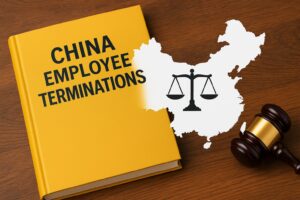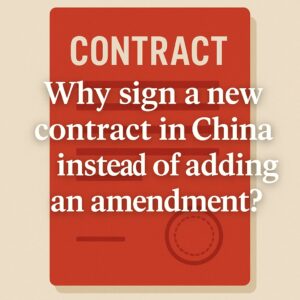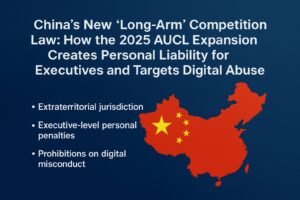Chinese nationals face serious restrictions on their ability to buy land in Florida, with the entry into force of SB 264 on July 1 of this year. This new law curbs real estate acquisitions by citizens of seven “countries of concern” (China, Cuba, Iran, North Korea, Russia, Syria, and “the Venezuelan regime of Nicolás Maduro”), but special treatment is being meted out to Chinese citizens. A lawsuit challenging SB 264 has been filed, with the federal government expressing its support for the plaintiffs.
The broader restrictions established by SB 264 are of note, but it is the provisions regarding Chinese nationals that stand out most. A new Section 692.204 of the Florida Statutes provides that Chinese citizens “may not directly or indirectly own, have a controlling interest in, or acquire by purchase, grant, devise, or descent any interest, except a de minimus indirect interest, in real property in [Florida].” These restrictions do not extend to green card holders or dual U.S.-Chinese nationals. In addition, SB 264 does not apply to Chinese citizens who owned land in the Sunshine State prior to July 1. There is no mention of Hong Kong or Macau in the new law, which suggests that the prohibitions apply to holders of passports issued by those special administrative regions as well.
There is an exception for parcels of up to two acres in size, provided the parcels are not within five miles of any military installation and the owner has a valid U.S. visa other than a tourist visa (such as a student or investment visa). In other words, Chinese nationals who are studying or working in the United States can own property in Florida, provided that property is no larger than two acres and is at least five miles away from a military installation. Only facilities encompassing at least ten contiguous acres are defined as military installations, meaning that recruitment centers in strip malls and small National Guard armories will not give rise to an exclusion zone around them.
SB 264 is being challenged by an Orlando real estate firm and four Chinese citizens, with the U.S. government filing a brief in their support (Shen v. Simpson). The new law is being labeled by some commentators as racist, but this characterization is inaccurate, given that ethnic Chinese in general are not being targeted. That said, the new law is clearly discriminatory. The key question is whether the discrimination is justified.
On the one hand, China represents an unprecedented challenge to the United States and other open societies. As welcoming as many Americans would like their country to be, there will be instances in which country of origin just cannot be ignored, as a matter of national security, particularly in the case of a systemic rival like China. But it is very hard to see how a blanket prohibition on acquiring residential properties advances national security objectives. In fact, it is daft to suggest that a Chinese national who plonks down money to buy a home in Winter Park or Bonita Springs is a greater national security risk than one who rents an apartment nearby.
A letter to the editor in support of SB 264 alleged that “certain countries, such as China and Russia, are known to deploy its citizens as secret agents of their government to establish themselves a private citizens in the U.S. just working regular jobs in hospitals, schools, daycares, and buying homes, marrying American citizens, while they gather information for their home country.” Though this is no doubt true, these “secret agents” will be far more successful if they can get a green card or, even better, become naturalized as U.S. citizens, in which case they could not only buy a 4-bedroom in Wellington, but possibly get jobs in the U.S. government. The strictest restrictions are imposed on Chinese nationals that only have tourist visas, who cannot legally stay in the country for more than six months at a time anyway. As for those with other visas, subject to the partial exemption, if their objective is to spy on a military installation, will it really make a difference that they have to drive six miles instead of five? Chinese spymasters must be laughing at the naivete of Florida lawmakers.
It can be argued that someone who does not have the right to reside in the United States should not be allowed to buy property in the country. Speculative land purchases by foreigners can negatively distort real estate markets. Yet preventing such speculation is clearly not the purpose of SB 264.
A more compelling argument might be that of reciprocity. It is not unreasonable for the United States (or any country) to treat foreign nationals in the same way that their countries treat Americans (without, of course, sinking to the level of countries that genuinely mistreat foreigners). Leaving aside that China does not offer Americans (or indeed anyone, even Chinese nationals) the opportunity to buy land outright (all urban land belongs to the state and all rural land is owned by collectives), foreigners are discriminated against when it comes to the acquisition of the limited land-use rights allowed under Chinese law.
Still, there is something troubling about county officials in Florida enforcing rules that discriminate on the basis of nationality. Though, again, the accusation of racism appears unjustified, the echoes of Florida’s checkered past should give its citizens pause. Chinese nationals might not have a right to buy land in Florida, but does it follow that Floridians want to live in a state where some people cannot buy a house, just because they come from a certain country, even if they have nothing to do with the regimes that rule their countries (and may in fact despise those regimes)? One would think that in a state to which many came escaping dictatorship, a certain degree of empathy would be afforded to those coming from China. Though not every current or prospective Chinese property owner is seeking the American Dream in Disney World’s shadow, many surely are.
Philosophical questions aside, the bottom line is that, at least for now, SB 264 is a reality. Would-be property buyers from China (and other countries of concern) need to be aware of Florida’s restrictions, but also consider the prospect of similar legislation elsewhere. In fact, the Texas Legislature recently considered a similar initiative. At the same time, a lot is riding on the outcome of the Shen case, not just for Florida but for the entire country.

























